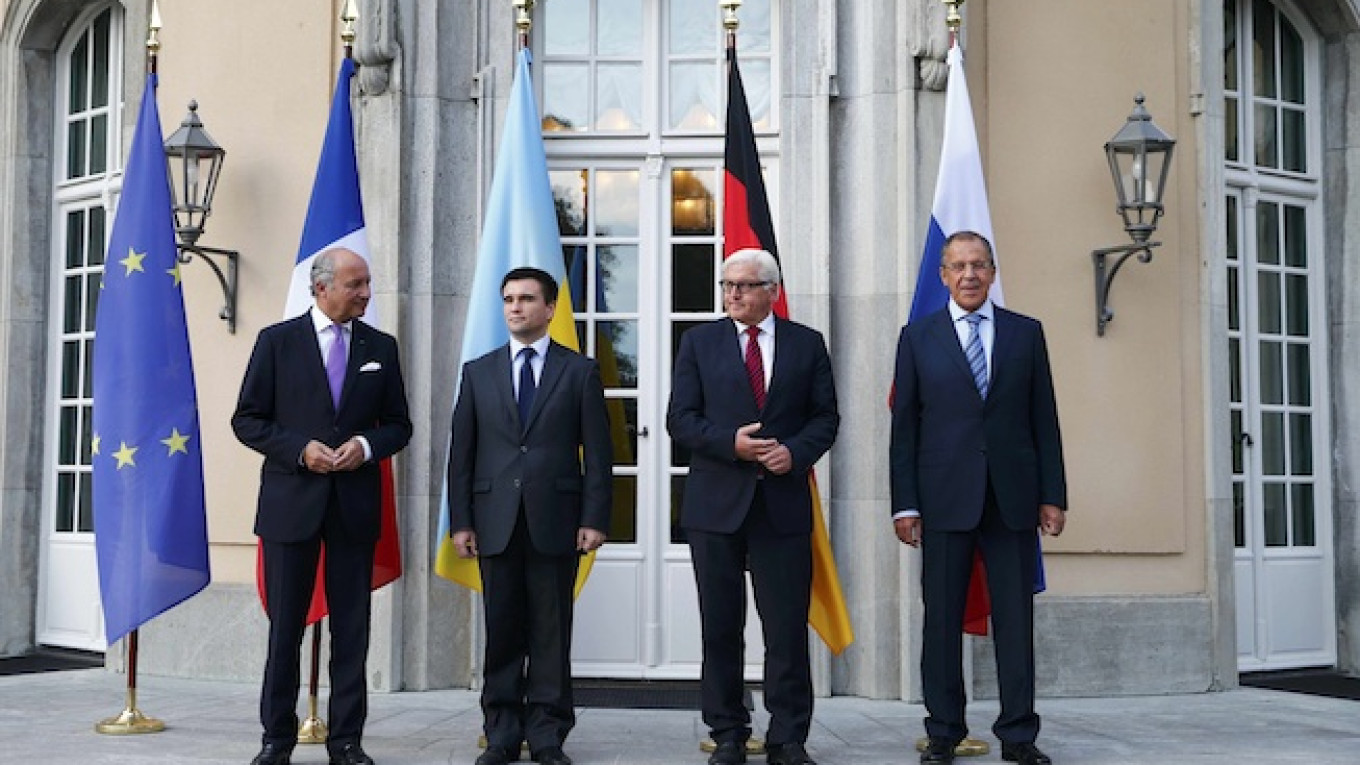BERLIN — German Foreign Minister Frank-Walter Steinmeier has said after a meeting with his counterparts from Ukraine, Russia and France that they would report back to leaders in their capitals and possibly agree on Monday or Tuesday how to continue talks.
"We will, and that's what's been agreed now, first report to our heads of government and state in our capital cities and then possibly during the course of Tuesday tomorrow, agree how to continue today's discussion," Steinmeier told reporters on Sunday.
A spokeswoman said he meant either Monday or Tuesday.
"The aim remains to bring about a cease-fire in Ukraine and to prevent future victims," Steinmeier added.
Steinmeier said some progress had been made during the talks at a villa by a lake on the outskirts of Berlin.
"It was a difficult discussion but I believe and I hope that we made progress on some points," he said, without giving details.
He said the ministers had spoken openly with each other and had focused on how to bring about a cease-fire in Ukraine, how to improve border controls along the Russian-Ukrainian border and had also talked about humanitarian aid as well as how to return a political process to gradually overcome the crisis.
Before the discussions Steinmeier had said the meeting would be used to explore ways to re-start the political process, which he had said meant above all coming up with a plan on how to bring about a sustainable cease-fire and a framework for effective border controls. He had warned that without new political impetus there was a risk of further escalation.
Earlier on Sunday, Kiev said Ukrainian forces had raised their national flag over a police station in the city of Luhansk which was for months under rebel control, in what could be a breakthrough in Ukraine's efforts to crush pro-Moscow separatists.
Ukrainian officials said however the rebels were fighting a desperate rearguard action to hold on to Luhansk, which is their supply route into neighbouring Russia, and that the flow of weapons and fighters from Russia had accelerated.
Russia denies helping the rebels and accuses Kiev, backed by the West, of triggering a humanitarian crisis through indiscriminate use of force against Russian speakers in eastern Ukraine who reject the Ukrainian government's rule.
See also:
A Message from The Moscow Times:
Dear readers,
We are facing unprecedented challenges. Russia's Prosecutor General's Office has designated The Moscow Times as an "undesirable" organization, criminalizing our work and putting our staff at risk of prosecution. This follows our earlier unjust labeling as a "foreign agent."
These actions are direct attempts to silence independent journalism in Russia. The authorities claim our work "discredits the decisions of the Russian leadership." We see things differently: we strive to provide accurate, unbiased reporting on Russia.
We, the journalists of The Moscow Times, refuse to be silenced. But to continue our work, we need your help.
Your support, no matter how small, makes a world of difference. If you can, please support us monthly starting from just $2. It's quick to set up, and every contribution makes a significant impact.
By supporting The Moscow Times, you're defending open, independent journalism in the face of repression. Thank you for standing with us.
Remind me later.


